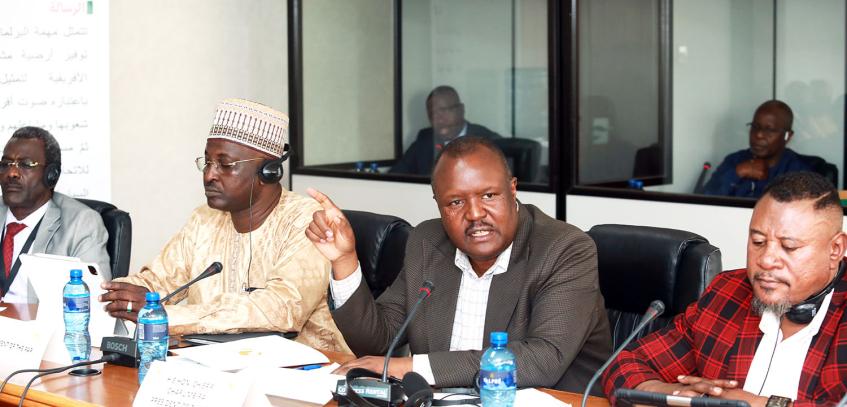Several Permanent Committees of the Pan-African Parliament have adopted crucial reports, underscoring the Parliament’s commitment to addressing Africa's most pressing social, economic, and humanitarian challenges during the ongoing Fourth Ordinary Session of the Sixth Parliament. The session is being held under the African Union’s 2024 theme, “Educate an African Fit for the 21st Century: Building Resilient Education Systems for Increased Access to Inclusive, Lifelong, Quality, and Relevant Learning in Africa.”
This theme reflects the Pan-African Parliament's dedication to fostering inclusive growth, social protection, and unified policies that create opportunities for all Africans. The adoption of these reports marks a pivotal moment, with the documents now set to advance to the Plenary for further discussion and potential inclusion in the Parliament’s Resolutions and Recommendations. Collectively, these legislative initiatives demonstrate the Parliament’s comprehensive approach to addressing challenges related to social protection, human rights, and economic development across the continent.
The Committee on Gender, Family, Youth, and People with Disabilities took a significant step by adopting the Draft Report of the Advocacy Mission, which focuses on advocating for the ratification of key African Union protocols aimed at championing the rights of persons with disabilities, older persons, and social protection. This report reflects a concerted effort to safeguard and empower vulnerable groups, ensuring their full integration into Africa's socio-economic development. Following the adoption, Committee Chairperson Hon. Dao Gabala Mariam praised the collaborative efforts that led to this milestone, stating, “We appreciate the roles played by everyone leading to this day of adopting this report. Together, we will build a better Africa.” Her remarks highlight the committee's unity and its commitment to tackling inequalities and promoting social justice.
Another key achievement was the adoption of the Model Law on the Right to Nationality and the Eradication of Statelessness in Africa by the Committee on Cooperation, International Relations, and Conflict Resolution. With statelessness affecting millions across the continent, this model law represents a critical step toward ensuring that every African is guaranteed the fundamental rights and protections tied to nationality. Committee Chairperson Hon. Dr. Sherief Mostafa Al-Gabaly emphasized the significance of this achievement and reaffirmed the committee’s commitment to ongoing improvement, saying, “We will continue working towards perfecting this report to achieve the desired outcomes for our continent.” His comments underscore the committee's determination to address the complex legal and humanitarian challenges hindering Africa’s unity and stability.
The Committee on Trade, Customs, and Immigration Matters also made strides by adopting the Draft Report on the Joint Workshop for the Validation of the Model Law on Labour Migration in Africa. In a continent where cross-border labour movement is crucial to economic growth, this report lays the groundwork for a regulatory framework that will protect migrant workers' rights while supporting economic integration. Committee Chairperson Hon. Senator Bideri John Bonds commended the dedication of committee members, stating, “I applaud the committee members for their participation and focus as we move toward shaping a better Africa.” His words reflect the committee's mission to create a fair and effective migration framework that fosters prosperity for all African nations.








